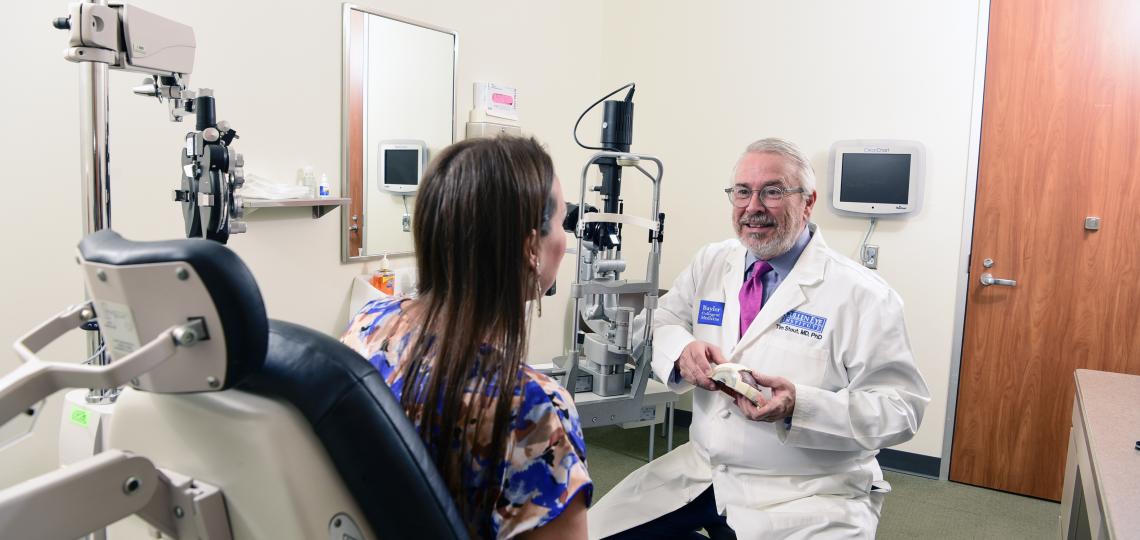Is Refractive Surgery Right for You? Factors to Take Into Consideration for Better Eyecare
In the realm of eye care, the choice to undertake refractive surgical treatment is a substantial one that demands thoughtful factor to consider. From the ins and outs of one's ocular health to the ins and outs of day-to-day routines and individual expectations, each element holds value in the wider landscape of refractive surgery candidacy.
Eye Health And Wellness Assessment
When considering refractive surgical treatment, an extensive eye health and wellness examination is crucial to evaluate the viability of the treatment for each individual. andalusia pediatrics. This examination involves a series of evaluations and examinations performed by an eye care professional to establish the general health of the eyes, the existence of any kind of hidden problems, and the stability of the refractive mistake
Throughout the analysis, various variables are taken right into account, such as the patient's case history, current eye prescription, corneal thickness, pupil dimension, and tear movie high quality. These analyses assist to determine any kind of contraindications to refractive surgery, such as corneal irregularities, cataracts, or unattended eye infections. Furthermore, the examination aids to handle individual assumptions pertaining to the possible outcomes of the surgery based upon their distinct eye characteristics.
Inevitably, the eye wellness examination is vital in ensuring the security and performance of refractive surgical treatment, as it offers valuable understandings into the person's eye wellness condition and assists establish one of the most suitable therapy options for attaining optimum aesthetic outcomes. (eye center andalusia)
Way Of Life Assessment
A thorough lifestyle evaluation is integral in determining the viability of refractive surgery for an individual's visual improvement demands. Way of living factors such as line of work, pastimes, and daily activities play a crucial role in the decision-making procedure regarding refractive surgery.
Furthermore, lifestyle routines such as sporting activities involvement, outdoor activities, or perhaps skin care regimens can affect the healing procedure and general success of refractive surgery. People who involve in contact sports may require to take additional preventative measures to shield their eyes during the recuperation period. In addition, people with extensive sun direct exposure may call for extra post-operative treatment to prevent issues. By carrying out a thorough way of life analysis, eye care specialists can tailor their referrals and therapy plans to fulfill the unique demands of each person, eventually causing enhanced aesthetic end results and contentment.
Expectation Placement

Setting realistic assumptions involves comprehensive pre-operative discussions between the ophthalmologist and the individual. The cosmetic surgeon must transparently connect the possible threats, benefits, and restrictions of the procedure (eye center andalusia). People require to understand that while numerous people achieve 20/20 vision or much better complying with refractive click surgical procedure, some might still need glasses for sure activities like analysis or driving at evening. Handling these expectations assists stop frustration and dissatisfaction post-surgery, causing a much more positive total experience for the client.
Danger Analysis

Elements that may enhance the threat of complications include age, certain medical conditions like autoimmune illness, unstable vision prescription, thin corneas, and impractical individual expectations. Additionally, choosing a experienced and knowledgeable cosmetic surgeon, complying with pre and post-operative care instructions carefully, and revealing any type of appropriate clinical background can help reduce dangers.
To minimize the probability of complications, ophthalmologists conduct thorough pre-operative assessments to determine any type of contraindications to surgical procedure. They also discuss the potential threats and benefits with patients during the examination process. By participating in open communication and shared decision-making, both the individual and the ophthalmologist can interact to establish if refractive surgical treatment is the appropriate selection based upon individual threat accounts and preferred end results.
Examination Importance
Considering the essential role of educated decision-making in analyzing risks and possible issues in refractive surgical procedure, the assessment process holds considerable importance in guiding clients in the direction of optimum end results. During the examination, the ophthalmologist evaluates the patient's eye wellness, refractive mistakes, and general suitability for surgery. This first evaluation is vital in figuring out the most suitable treatment for every individual, thinking about aspects such as corneal thickness, student dimension, and existing eye problems.
In addition, the examination works as a possibility for individuals to discuss their assumptions, issues, and any inquiries they may have concerning the surgical treatment. Clear interaction between the cosmetic surgeon and the patient is necessary to guarantee realistic assumptions and a thorough understanding of the prospective risks and advantages included.
Furthermore, the assessment permits the cosmetic surgeon to describe the different medical alternatives offered, their corresponding outcomes, and the post-operative care called for. This extensive conversation encourages individuals to make knowledgeable decisions regarding their eye treatment, leading to much better satisfaction and results post-surgery.
Verdict
To conclude, people thinking about refractive surgical procedure should undergo a detailed eye wellness evaluation, evaluate their way of living behaviors, straighten their expectations with prospective end results, assess the associated risks, and prioritize examinations with eye care specialists. These variables play an important duty in determining the suitability of refractive surgery for each individual, guaranteeing optimal results and fulfillment with the treatment.
People taking into consideration refractive surgical procedure usually have high find more information assumptions pertaining to the end results, expecting ideal vision without the requirement for glasses or contact lenses. While refractive surgery can greatly improve vision and reduce dependence on aesthetic aids, it is vital for people to recognize that results may vary based on specific aspects such as the degree of refractive mistake, corneal density, and overall eye wellness.
By engaging in open communication and shared decision-making, both the ophthalmologist and the patient can function with each other to establish if refractive surgical treatment is the best choice based on specific danger profiles and preferred outcomes.
Considering the essential function of informed Find Out More decision-making in analyzing dangers and potential difficulties in refractive surgical treatment, the consultation procedure holds considerable importance in leading patients in the direction of ideal end results. During the appointment, the ophthalmologist reviews the client's eye wellness, refractive errors, and general suitability for surgical treatment.